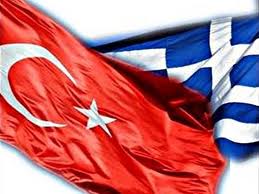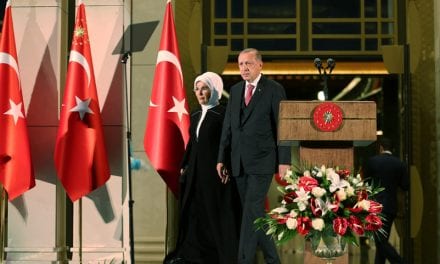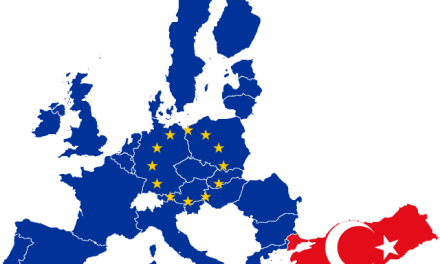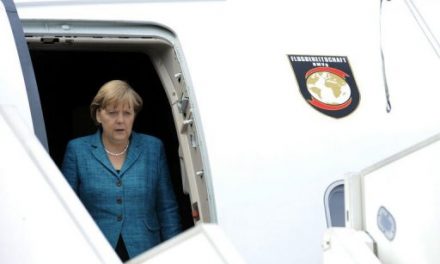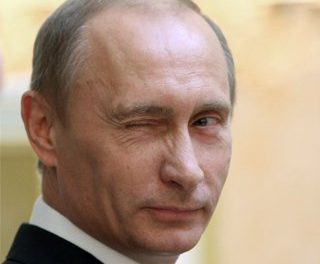By Huda al-Husseini, Al-Arabiya
Is Turkey about to open a military front against Greece? As a matter of fact, hostile statements and recent events in the Aegean have led to fears of a potential conflict between Turkey and Greece.
Last Saturday, Turkish warships threatened to use force against an Italian ship in order to prevent it from extracting gas in Cyprus. There have been reports that Greek and Turkish vessels confronted each other in waters off uninhabited disputed islands on January 12. There have also been frequent violations of Greek airspace by Turkish fighter jets. On Monday, Greece reported 42 air incursions.
War with Greece not likely
Greece is furious about Turkish attempts to block the prospects of natural gas’ drilling around Cyprus. Yet, despite the growing tension between the two countries, going to war does not seem a plausible option, because Turkey is involved in many other issues at this time. Turkey also has close economic relations with Europe which will be affected by any war in the Aegean. Thus, initiating a conflict may lead to an economic suicide for Ankara.
Initially, Erdogan had started peace talks with Kurds when he was keen to show his benevolent side. Now, the Kurds are subjected to his political and militaristic rage. Erdogan has turned his back on democratic principles, which Turkey is supposed to share with its allies
Huda al-Husseini
Turkish public opinion is more worried about the Kurdish threat, not Greece. But the rhetoric of war in the Aegean serves the political agenda of Turkish President Recep Tayyip Erdogan well. With presidential elections scheduled for next year, Erdogan knows that using historic grievances guarantees winning the support of hardline voters.
Nevertheless, the prospect of a sudden misadventure in the Aegean could lead to unprecedented events. In fact, to resolve the recent collision between Turkish and Greek ships, Prime Minister Binali Yıldırım and Greece’s Alexis Tsipras spoke on the phone to defuse the situation. As a result of the growing tension, Athens has called on NATO to take a stronger stance against Turkey, urging Washington to use diplomatic pressure by threatening to put off sales of its jet fighter to Ankara.
Character arc of a totalitarian
Erdogan has quickly changed from being a democratic model into a leader seeking to establish totalitarian rule. In 2004, the European Union extended an official invitation to Turkey to join the bloc. It urged Turkey to curtail the strength of the Turkish army. However, there were soon accusations of conspiracy leading to the arrest of senior Turkish military officers and a failed coup attempt. Until now, there are doubts as to who suuports it. In response, Turkey resorted to a full scale repression and used violence as a strategy to create a one-man state.
Initially, Erdogan had started peace talks with Kurds when he was keen to show his benevolent side. Now, the Kurds are subjected to his political and militaristic rage. Erdogan has turned his back on democratic principles, which Turkey is supposed to share with its allies, especially NATO countries. However, neither his totalitarian rule nor his stance regarding the Kurds has provoked the wrath of Washington. However, his fiery statements against Washington, which did not change its strategy in Syria, did.
Before the visit of US Secretary of State Rex Tillerson to Ankara which took place last week, there was speculation about what needs to be done to restore amicable relations among the two NATO allies. Observers believe that Washington and Ankara will continue to safeguard their interests while maintaining their relations, which has been the norm since Turkey’s admission into NATO in 1952. This somewhat optimistic outlook is entertained more by American officials than by their Turkish counterparts.
Turkish politicians have not forgotten the letter of US President Lyndon Johnson in 1964 to Turkish prime minister, when he advised him against taking any military action against Cyprus. Yet in July 1974, Turkey annexed the northern part of Cyprus. The Turks have not even forgotten the arms embargo of the 1970s and the arrest of some Turkish Special Forces personnel in northern Iraq during the 2003 invasion. In contrast, American politicians do not give much importance to such events. This is partially due to a misconception on both sides about the nature of the NATO alliance. Both sides think of it as an entity more than a defensive alliance initially established to stop Soviet expansion, and finally as a counter-terrorism mechanism to block any Russian efforts for destabilization.
There is a lot of literature about the values of NATO and that its main goal of providing greater security to its member states, as well as the conviction that an attack on one member state is tantamount to an attack on all.
This misconception has led to an idealistic view of NATO’s capacity to foster amicable relations among its members, because the reality is each NATO member has developed an independent foreign policy to achieve its own goals.
On the one hand, Turkey seeks to stop the expansion of Kurdish-controlled areas in northern Syria and wants to prevent the creation of an independent Kurdish region along its borders, which it considers more important than defeating ISIS or other radical Islamic organizations. Washington, on the other hand, considers defeating ISIS and other radical groups as the most critical issue in Syria. Until ISIS is totally and fully eliminated, and until Turkey quashes all Kurdish hope of autonomous rule, the war in Syria will keep fomenting tensions between the two countries.
Is Turkey serious about NATO?
It is questionable whether President Erdogan acknowledges the importance of NATO membership as his predecessors did. He may even consider this alliance as a liability which keeps Turkey from acting unilaterally.
If Erdogan feels that his objectives require Turkey to renounce the NATO and the United States, he may take actions that advance the breaking up of NATO, by provoking a conflict over oil exploration around Cyprus or unnecessarily precipitating troubles against Greece in the Aegean Sea.
Tillerson held a three-hour meeting with Erdogan in the presence of the Turkish foreign minister as a trusted translator. This meeting allowed for honest discussions but its effectiveness could only be measured in coming weeks and months. The American media leaked that Tillerson offered three things to Erdogan: joint US-Turkish military garrisons in Manbij, establishing a buffer zone in Afrin, and gradually decreasing America’s relations with Syrian Kurd fighters. Still, the State Department spokeswoman declined to comment.
However, if both sides continue making hostile statements then a deep rupture in relations will appear highly possible. Russia will exploit Turkey’s estrangement from the West to weaken the NATO alliance in the Black Sea region. Russian President Vladimir Putin has become an expert in profiting from the divisions within this alliance, using natural gas and information warfare as weapons. One Western politician told me: Erdogan’s inclination to make enemies is a blessing to salvage the West! He does not seem to be helping anyone, he only works to isolate himself. He added that Turks should know that they cannot wander alone in the world, and that we will not interfere by supporting the Turkish opposition so as not to promote popularization in the country.
Does Erdogan trust Russia? How is his relationship with Iran, the ally of his enemy, Bashar al-Assad? The Kurds are his main worry, but now he is also worried about the oil and gas in Cyprus (Greece’s ally) and he also wants to antagonize the United States?
It seems that the president who thinks he is working to restore the Ottoman sultanate can use a quantum of serenity. The world has changed. The only thing left for him to do is reach China and North Korea.

